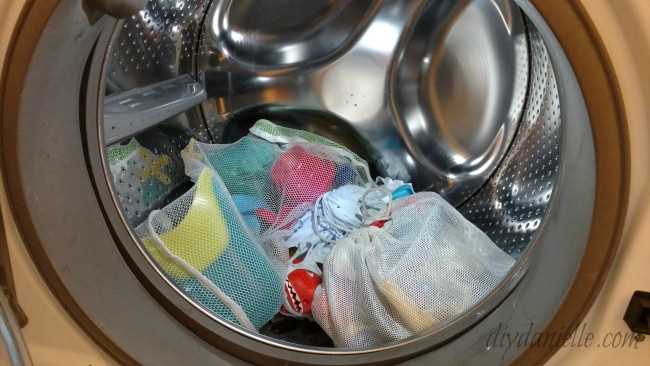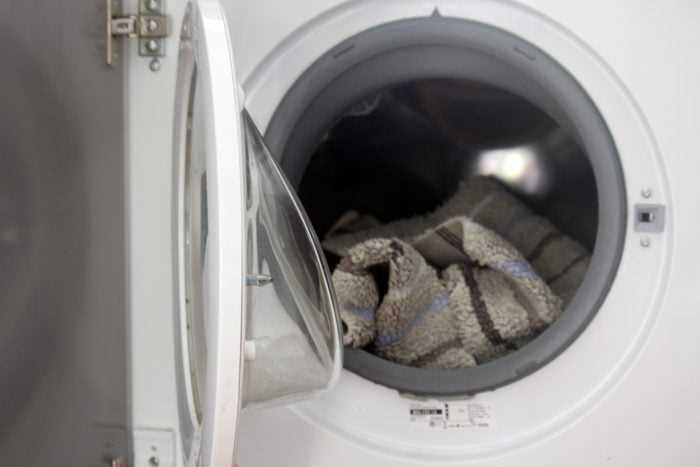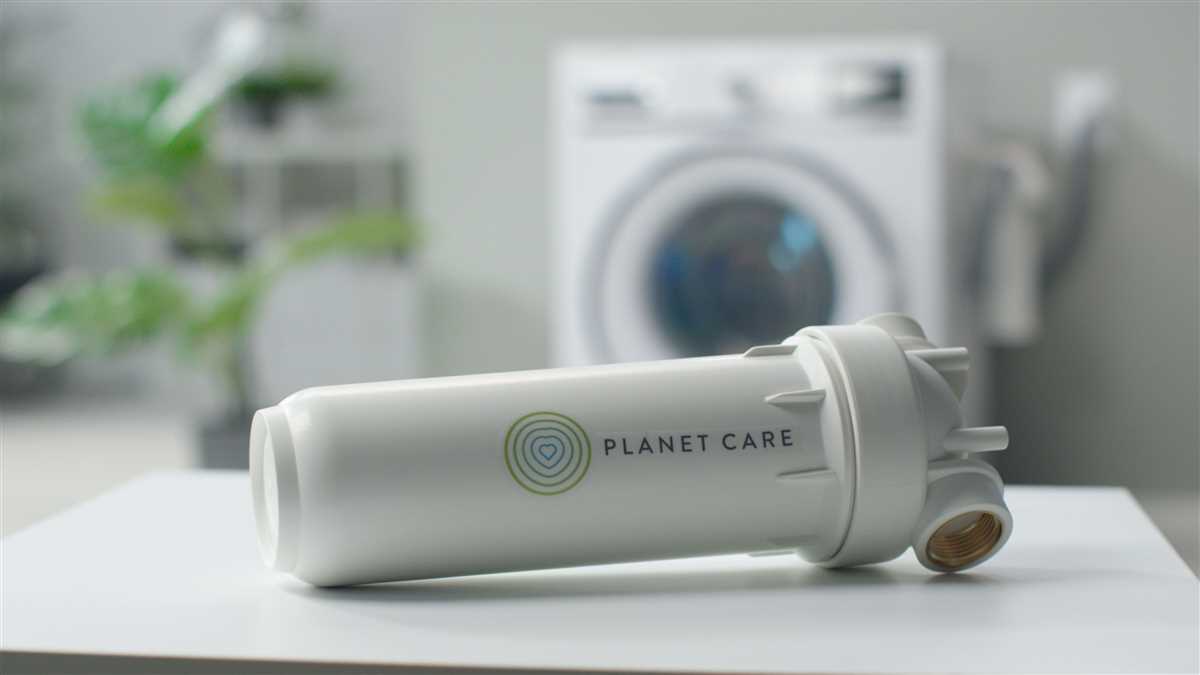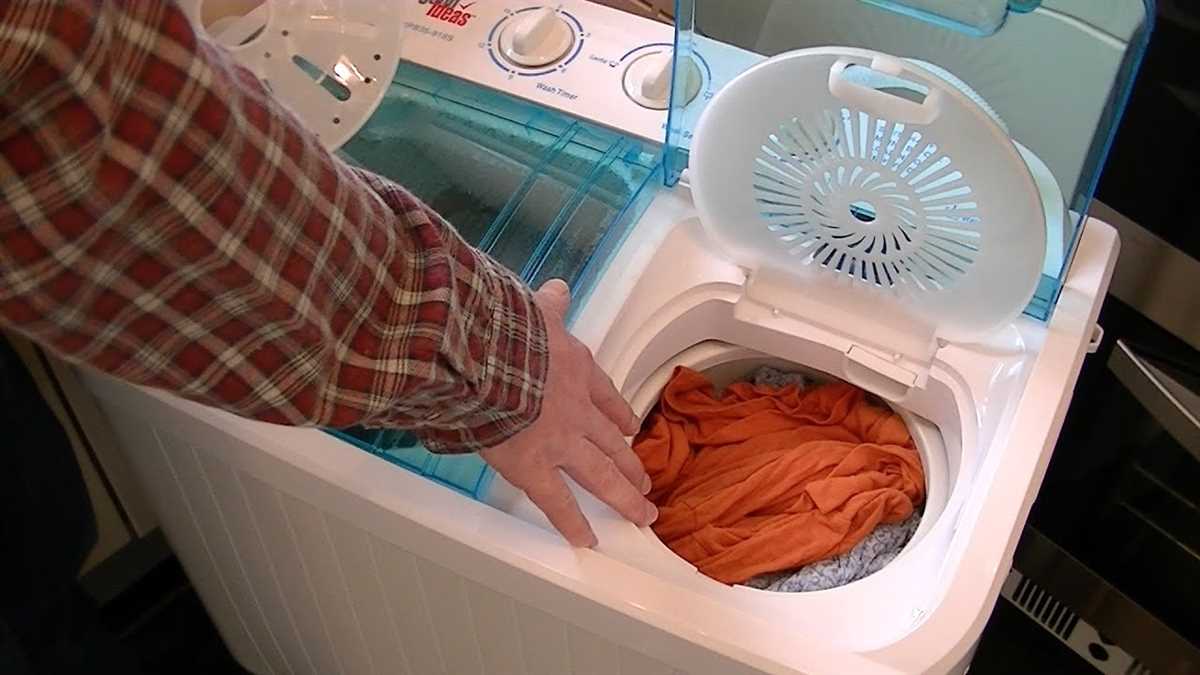




When it comes to washing household items, it’s important to know which materials can safely be cleaned in the washing machine and which ones should be washed by hand. One material that often raises questions is plastic. Can you safely put plastic items in the washing machine? The answer depends on a few factors.
Firstly, it’s important to note that not all types of plastic are created equal. Some plastics, like those used in food containers or water bottles, are designed to withstand the heat and agitation of a washing machine. However, other types of plastic, like thin or brittle plastics, may not hold up well in the washing machine and can become damaged or distorted.
Another factor to consider is the type of washing machine you have. Front-loading machines generally have gentler cycles compared to top-loading machines, which may make them better suited for washing plastic items. Additionally, using a lower temperature setting and a delicate or hand wash cycle can help protect plastic items during the washing process.
Overall, it’s best to check the care instructions provided by the manufacturer for each plastic item before attempting to clean it in a washing machine. If the item is not suitable for machine washing, it’s always safer to wash it by hand using mild detergent and warm water. Taking these precautions will help ensure that your plastic items stay in good condition and last longer.
Exploring the Safety of Washing Plastic in Machines

When it comes to washing plastic in machines, there are several factors to consider in order to determine its safety. While some plastic items can be safely washed in a machine, others may not withstand the heat and agitation and could be damaged. Let’s explore this safety aspect further.
Types of Plastic
Not all plastics are created equal, and their individual properties determine whether they can be safely washed in a machine. Plastics that are labeled as dishwasher-safe or laundry-safe can generally be safely washed in a machine. However, it’s important to read and follow the manufacturer’s instructions for each plastic item to ensure its compatibility with machine washing.
Heat and Agitation
The heat and agitation in a washing machine can be harsh on certain types of plastic. High heat can cause plastic to warp, melt, or release harmful chemicals. Similarly, the agitation can lead to breakage or deformation of plastic items. It’s important to consider these factors and evaluate the potential risks before washing any plastic item in a machine.
Plastic Containers and Utensils
Plastic containers and utensils, such as food storage containers and cutlery, are commonly washed in machines. However, it’s important to check the product labels to ensure they are dishwasher-safe. Using the top rack of the dishwasher and selecting a gentle cycle can help minimize the risks associated with machine washing plastic containers and utensils.
Clothing and Linens
When it comes to clothing and linens made of plastic-based materials, such as polyester or nylon, they can generally be safely washed in machines. However, it’s always a good idea to check the care instructions on the clothing tags to confirm machine washing is suitable. Delicate or specialty items may require hand washing or other special care.
Conclusion
While it’s generally safe to wash certain types of plastic in machines, caution should be exercised. Always check the manufacturer’s instructions and product labels to determine if an item is suitable for machine washing. It’s also essential to consider the individual properties of the plastic and the potential risks associated with heat and agitation. By doing so, you can ensure the longevity and safety of your plastic items while keeping them clean and well-maintained.
The Importance of Understanding Plastic Types
Understanding the different types of plastic is crucial when it comes to washing them in a machine. Each type of plastic has its own properties, strengths, and weaknesses, which can affect how it reacts to heat, water, and agitation during the washing process.
Here are some common types of plastic and their characteristics:
- Polyethylene Terephthalate (PET or PETE) – PET is commonly used for packaging water bottles and other beverages. It is generally safe to wash PET plastic in the machine, as it can withstand higher temperatures.
- High-Density Polyethylene (HDPE) – HDPE is used in milk jugs, detergent bottles, and some plastic bags. It is considered safe to wash HDPE plastic in the machine, as it is resistant to heat and chemicals.
- Polyvinyl Chloride (PVC) – PVC is used in pipes, vinyl flooring, and some plastic bottles. It is not recommended to wash PVC plastic in the machine, as it can release harmful chemicals when exposed to heat.
- Low-Density Polyethylene (LDPE) – LDPE is used in shopping bags, food packaging, and squeeze bottles. It is generally safe to wash LDPE plastic in the machine, as it is resistant to heat and chemicals.
- Polypropylene (PP) – PP is used in food containers, medicine bottles, and some packaging. It is generally safe to wash PP plastic in the machine, as it has a high melting point and is resistant to chemicals.
- Polystyrene (PS) – PS is used in foam food containers, disposable cups, and packaging. It is not recommended to wash PS plastic in the machine, as it can release harmful chemicals when exposed to heat.
- Other Plastics (Polycarbonate, Polyamide, etc.) – Other types of plastics may have varying properties and should be checked individually. Some may be safe to wash in the machine, while others may not be.
Before washing plastic items in the machine, always check the label or packaging for information on the type of plastic used. If unsure, it is best to err on the side of caution and hand wash the plastic to avoid any potential damage or release of harmful substances.
| Plastic Type | Suitability for Machine Washing |
|---|---|
| PET or PETE | Safe |
| HDPE | Safe |
| PVC | Not recommended |
| LDPE | Safe |
| PP | Safe |
| PS | Not recommended |
| Other Plastics | Varying suitability |
By understanding the different types of plastic and their suitability for machine washing, you can make informed decisions on how to properly care for your plastic items without compromising their durability or safety.
Risks and Benefits of Washing Plastic

Risks:
- Potential Damage: One of the risks of washing plastic in the washing machine is that it can get damaged. The high heat and agitation can cause the plastic to warp, melt, or crack.
- Chemical Leaching: Another concern is that plastic containers may release harmful chemicals during the washing process. These chemicals, such as phthalates or BPA, can leach into the water and contaminate other items in the machine.
- Microplastic Pollution: Washing plastic clothing or accessories made of synthetic materials can contribute to the problem of microplastic pollution. When these items are washed, tiny plastic fibers can break off and end up in the water supply.
Benefits:
- Convenience: Washing plastic items in the machine can be convenient, saving time and effort compared to hand washing.
- Efficiency: The washing machine can provide a more thorough and efficient cleaning compared to hand washing, especially for larger or bulkier plastic items.
- Sanitization: Washing plastic items in the machine with hot water and detergent can help sanitize them, removing bacteria and germs more effectively.
When deciding whether to wash plastic in the washing machine, it is important to consider the risks and benefits. It is recommended to follow the manufacturer’s guidelines and use gentle cycles or special plastic washing bags to minimize the potential damage. Additionally, choosing plastic items that are labeled as dishwasher-safe can help ensure safer washing.
Common Misconceptions About Plastic Washing
1. All types of plastic can be safely machine washed
One common misconception is that all types of plastic can be safely washed in a washing machine. However, this is not true. Some types of plastic, such as thin or brittle plastics, may not withstand the agitation and high temperatures of a washing machine. It is important to check the specific type of plastic and its washing instructions before attempting to machine wash it.
2. Washing plastic in the machine will remove all stains and odors
Another misconception is that washing plastic in the machine will remove all stains and odors. While washing can help to remove some dirt and grime, it may not be effective in removing tough stains or odors. Additionally, machine washing can sometimes cause plastic to warp or lose its shape, which may make the stains or odors more difficult to remove.
3. Plastic bags and wraps can be machine-washed along with other items

Many people assume that plastic bags and wraps can be safely machine washed along with other items. However, washing these items in a machine can be risky. Thin plastic bags or wraps may get caught in the machine’s agitator or become tangled with other items, leading to damage to the machine or the plastic itself. It is best to hand wash or air dry these types of plastic items.
4. Washing plastic in the machine is always more convenient
Some individuals believe that washing plastic in the machine is always more convenient than alternative methods. While machine washing may be convenient for some types of plastic, such as durable and dishwasher-safe items, it may not be the best option for all plastics. Delicate or heat-sensitive plastics may require hand washing or alternative cleaning methods to prevent damage.
5. All plastic items can be dried in a dryer after washing
It is a common misconception that all plastic items can be safely dried in a dryer after washing. However, this is not always the case. Heat-sensitive plastics can melt or deform when exposed to high temperatures in a dryer. It is important to check the care instructions for each plastic item to determine the appropriate drying method.
- It is important to consider the specific type of plastic and its washing instructions before machine washing.
- Machine washing may not remove all stains and odors from plastic items.
- Plastic bags and wraps should not be machine washed, as they can become tangled or damaged.
- Alternative cleaning methods may be necessary for delicate or heat-sensitive plastics.
- Some plastic items should not be placed in a dryer, as they can melt or deform.
Proper Care and Maintenance for Plastic Items
Plastic items are commonly used in our daily lives, and it’s important to properly care for and maintain them to ensure their longevity. Here are some tips for taking care of your plastic items:
Cleaning Plastic Items

1. Handwashing is usually the safest and most effective method for cleaning plastic items. Use a mild dish soap and warm water to gently clean the surface of the plastic. Avoid using harsh chemicals or abrasive cleaners, as they can damage the plastic.
2. For stubborn stains or odors, you can try soaking the plastic item in a mixture of warm water and baking soda. This can help remove stains and neutralize odors. Rinse thoroughly after soaking.
3. Avoid using hot water or high heat to clean plastic items, as it can cause the plastic to warp or melt. Stick to lukewarm or cool water when cleaning.
Storing Plastic Items
1. When storing plastic items, it’s important to keep them away from direct sunlight or high heat sources. Prolonged exposure to heat and sunlight can cause the plastic to degrade or become brittle.
2. Store plastic items in a cool, dry place to prevent moisture build-up, which can lead to mold or mildew growth. Use airtight containers or bags to keep out any excess moisture.
Avoiding Certain Plastics in the Washing Machine

1. While it’s generally not recommended to put plastic items in the washing machine, there are some exceptions. Certain plastic items, such as those made from durable and heat-resistant materials like polypropylene or high-density polyethylene, may be deemed safe for machine washing. Always check the manufacturer’s instructions before washing plastic items in the machine.
2. It’s important to note that putting delicate or brittle plastic items in the washing machine can cause them to break or become damaged. Be cautious and consider handwashing or alternative cleaning methods for these types of plastic items.
Regular Inspections

Regularly inspect your plastic items for any signs of damage or wear. Cracks, chips, or loose parts can pose a safety hazard and should be addressed immediately. If a plastic item is damaged beyond repair, it’s best to dispose of it properly and replace it with a new one.
| Cleaning | Storing | Avoiding Washing Machine | Regular Inspections |
|---|---|---|---|
| Handwash with mild soap and lukewarm water | Away from heat and sunlight | Check manufacturer’s instructions | Regularly inspect for damage |
| Use baking soda for stains and odors | Store in a cool, dry place | Be cautious with delicate/brittle plastic items | Dispose of damaged items |
| Avoid harsh chemicals and abrasive cleaners | Use airtight containers/bags to prevent moisture |
By following these care and maintenance tips, you can help extend the lifespan of your plastic items and ensure they remain in good condition for longer. Proper cleaning, storing, and handling can help you get the most out of your plastic items while keeping them safe to use.
Alternatives to Washing Plastic in Machines
If you’re concerned about putting plastic in the washing machine, there are several alternatives you can consider:
Hand Washing
One option is to wash plastic items by hand. Fill a sink or basin with warm water and a small amount of mild dish soap. Gently scrub the item with a soft cloth or sponge, paying extra attention to any stains or residues. Rinse thoroughly with clean water and allow the item to air dry.
Dishwasher
Another alternative is to clean plastic items in the dishwasher. Check the item’s label or packaging to ensure it is dishwasher safe. Place it securely in the dishwasher’s top rack, away from the heating element. Use a gentle cycle and avoid using high temperatures or harsh detergents. Once the cycle is complete, allow the item to air dry before using or storing.
Vinegar Soak
If you’re dealing with stubborn stains or odors on plastic, you can try soaking the item in a mixture of one part white vinegar and three parts water. Leave the item in the solution for a few hours or overnight. Afterward, wash it with mild dish soap and rinse thoroughly.
Baking Soda Paste
Baking soda is known for its cleaning properties. Create a paste by mixing baking soda with a small amount of water. Apply the paste to the plastic item, focusing on any stains or dirt. Gently scrub with a soft cloth or sponge, and then rinse thoroughly.
Disinfecting Wipes
If you’re looking for a quick and convenient way to clean plastic, disinfecting wipes can be a good option. Look for wipes that are safe for use on plastic surfaces and follow the instructions on the packaging. Simply wipe down the item with the disinfecting wipe, paying attention to any dirty or sticky areas.
Remember to always follow the manufacturer’s instructions and recommendations when cleaning plastic items. It’s important to consider the specific material and type of plastic before choosing a cleaning method to avoid any damage or deterioration.
FAQ
Can I put plastic in the washing machine?
Yes, you can put some types of plastic in the washing machine. However, it is important to check the label or packaging of the plastic item to ensure that it is safe for machine washing. Some plastics, such as food containers or water bottles, may be dishwasher safe but not washing machine safe.
What types of plastic can be safely washed in the washing machine?
Most plastic items that are safe for machine washing will have a label or symbol indicating so. Generally, hard plastic items like toys, kitchen utensils, and some household items can be safely washed in the machine. However, it is always best to double-check the label or instructions to be sure.
Are there any risks or dangers associated with washing plastic in the machine?
While washing plastic in the machine is generally considered safe, there are some potential risks and dangers to be aware of. High temperatures in the washing machine can cause certain plastics to warp, melt, or release harmful chemicals. Additionally, if the plastic item has any metal parts or attachments, they may rust or become damaged in the machine.
How should I prepare plastic items for washing in the machine?
Before washing plastic items in the machine, it is important to remove any detachable parts or accessories, such as lids or straws. These can be washed separately by hand. Additionally, it is advisable to place plastic items in a garment bag or pillowcase to prevent them from getting tangled or damaged during the wash cycle.
What is the best way to clean plastic items if they are not safe for the washing machine?
If a plastic item is not safe for the washing machine, it is best to clean it by hand using warm water and mild dish soap. Scrub the item gently with a sponge or soft brush, rinse thoroughly, and allow it to air dry. Avoid using harsh chemicals or abrasive cleaners, as they can damage the plastic.














